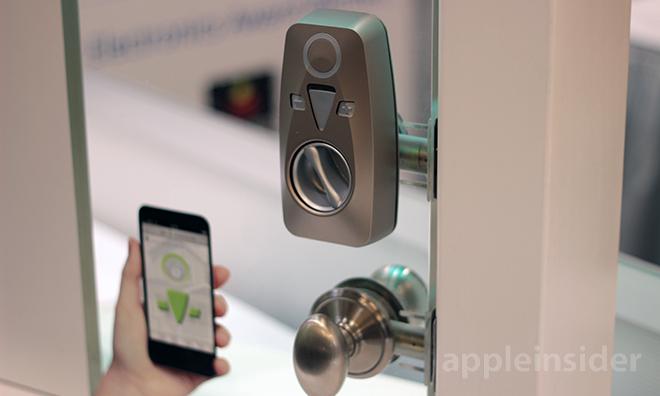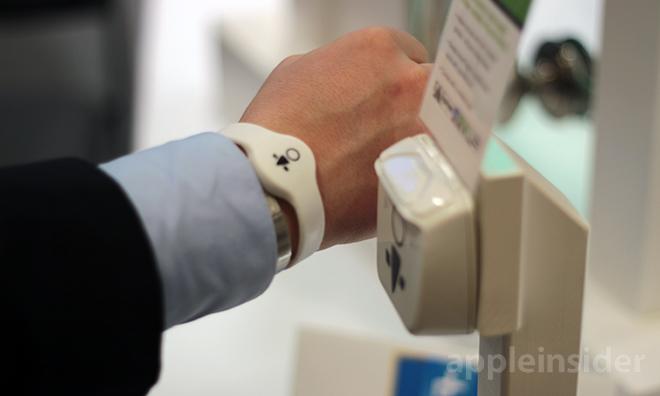Throwing its hat into the growing ring of "smart home" products, Okidokeys is bringing a line of wireless door lock devices to market that promise remote access, unique "keys" and highly customizable configurations.
With its lineup of devices, Okidokeys is entering the burgeoning "smart home" segment, which looks to automate everyday tasks to simplify the lives of users.
Much like the Kwikset's Kevo lock, Okidokeys' solution is built around a central deadbolt lock. The battery-powered main unit slides over existing mechanisms, making installation a simple procedure.
Unlike most smart locks on the market, the Okidokeys platform adopts multiple communications protocols, including Bluetooth 4.0, near-field communications (NFC), radio frequency identification (RFID) and crypto acoustic credential (CAC) technology. The system also hooks up to the Web via a proprietary bridge called the Okidokeys Virtual network.
Perhaps most interesting are the virtual keys provided as part of the system. Users can lock/unlock remotely from iOS and Android apps (with the Okidokeys bridge), as well as what looks to be a Web client. At the point of entry, however, the outdoor Smart Reader accepts signals from non-smartphones, keychain tags, keycards and special bracelets and watches.
As with Kevo, Okidokeys allows users to grant and revoke access via provided software, while the system will send out push notifications when a key has been used to open a door.
Okidokeys starts at $179 for the lock unit, then moves up to a $229 package which includes three Smart-Wristbands, three Smart-Cards, three Smart-Key chains, and a limited-edition Smart-Watch. Finally, the Okidokeys Connect-pack includes the bridge.
In addition, the company is rolling out add-on locks and activation mechanisms for garage doors and gates.
 AppleInsider Staff
AppleInsider Staff









 Christine McKee
Christine McKee
 Charles Martin
Charles Martin
 Mike Wuerthele
Mike Wuerthele
 Marko Zivkovic
Marko Zivkovic
 Malcolm Owen
Malcolm Owen


 William Gallagher
William Gallagher

-m.jpg)






15 Comments
Why you no put video?
The last thing I need; is battery requirements for door locks and my locked doors exposed to hacking.
On the other hand a $25 door lock break in device from eBay could be a next business.
don't be fooled, your traditional door locks are more prone to hacking, something i found out using the glory of youtube, a hairpin (5c) and a few minutes on my own front door
Seriously... "Okidokeys"? As in okeydokey?? Surely the result of what must have been one of the worst brainstorming sessions in history!
The last thing I need; is battery requirements for door locks and my locked doors exposed to hacking.
On the other hand a $25 door lock break in device from eBay could be a next business.
I doubt most people would have these installed on a solid glass doors - meaning that from outside there would be no way to know that such a device was installed. If you search on lock pics you will find that most types of locks have some sort of tool or device available for defeating them.
I am surprised someone hasn't put on their tin foil hat and claimed that the NSA or DHS is backing all these type of electronic locks as it would make the job of entering a building much easier. Then again it all depends on whether you are trying to be stealthy when you break in.